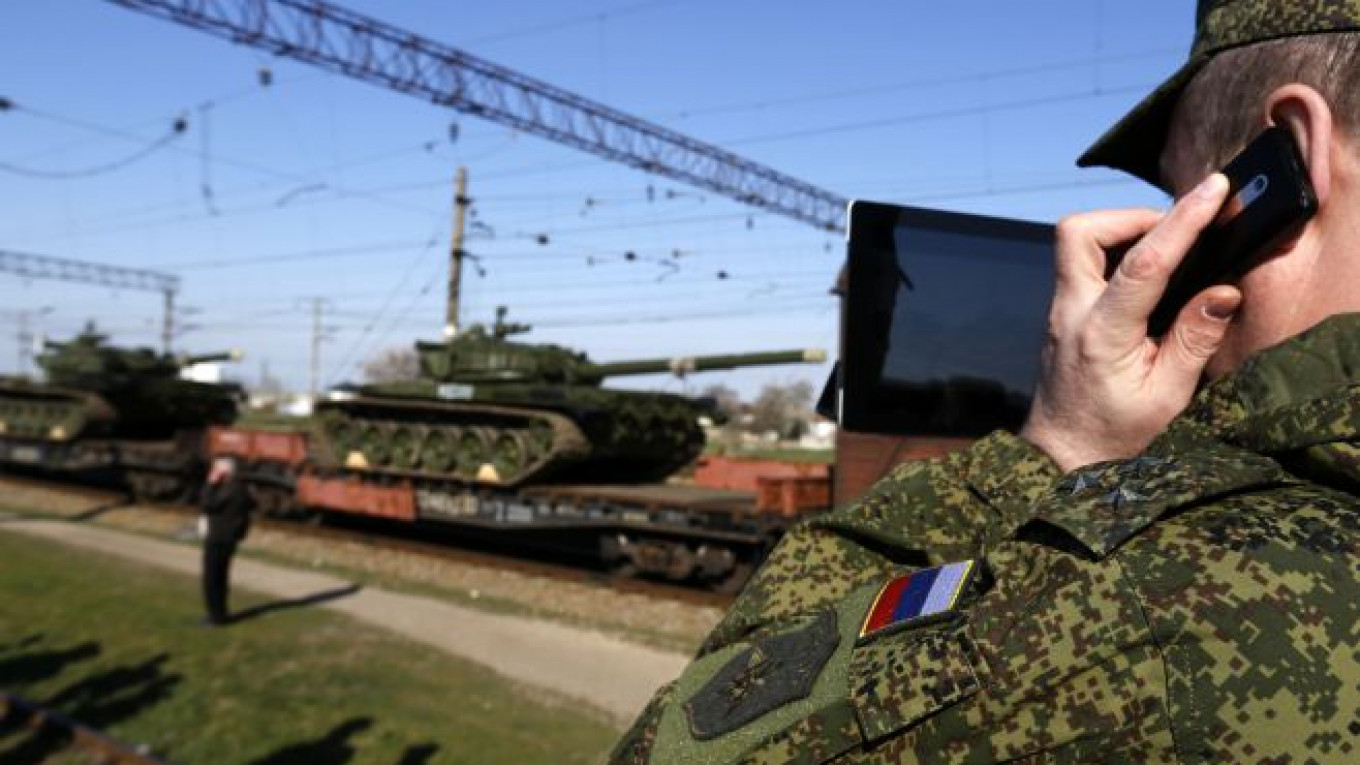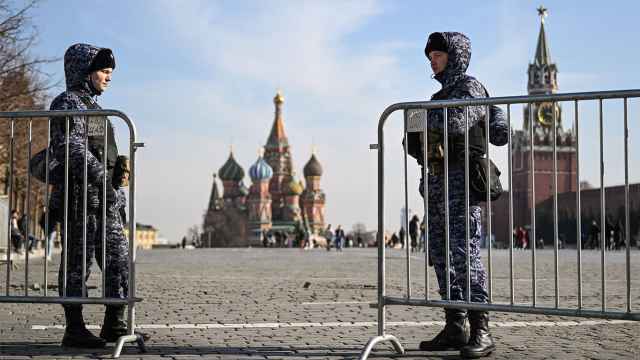BRUSSELS — NATO will decide new steps on Tuesday to reinforce eastern European countries worried by Russia's annexation of Crimea, and on how to bolster Ukraine's armed forces.
Diplomats said NATO foreign ministers will look at options ranging from stepped-up military exercises and sending more forces to eastern members states, to the permanent basing of alliance forces there — a step Moscow would view as provocative.
Ministers from the 28 alliance members are meeting in Brussels for the first time since Russia's military occupation and annexation of Ukraine's Crimea region caused the worst East-West crisis since the Cold War.
While the United States and its allies have made clear they will not intervene militarily in Ukraine, which does not belong to NATO, they have scrambled to reassure anxious NATO members in eastern Europe, particularly ex-Soviet republics in the Baltics, that they are sheltered by the alliance's security umbrella.
The United States has increased the number of U.S. aircraft in regular NATO air patrols over the Baltic States and beefed up a previously planned training exercise with the Polish air force.
U.S. Ambassador to NATO Douglas Lute said the ministers, including Secretary of State John Kerry, would discuss further measures to reassure the eastern European allies.
"They will talk about … what more can be done to amplify the measures that have been taken already and to sustain them over time so that these measures are not simply short-term gestures," Lute told a news conference.
Since 1999, when it began admitting former members of the Soviet-led Warsaw Pact, NATO has had a self-imposed restriction on permanently basing alliance forces in eastern Europe. However, Poland and Romania have agreed to host parts of the U.S. anti-ballistic missile shield and NATO air forces take turns to provide air cover over the Baltic states.
A senior NATO diplomat said the Crimean crisis would probably lead to the issue of permanent bases being discussed. "I think that these are the sorts of things that ministers are likely to talk about in the next couple of days," he said.
The ministers' meeting continues on Wednesday, although it is due to discuss Afghanistan then.
Flaunting Russia's Grip
Prime Minister Dmitry Medvedev flaunted Russia's grip on Crimea by flying to the region and holding a government meeting there on Monday. But in a gesture that could ease tension, Moscow said it had pulled some troops back from near Ukraine's eastern border.
Ben Rhodes, White House deputy national security adviser, told reporters last week that the United States would increase temporary deployments of ground and naval forces to NATO allies in eastern Europe. "We expect other European partners to step up and join us in doing so," he said.
U.S. forces in Europe have fallen from just over 300,000 in the final years of the Cold War to about 100,000 in 2005. The number is estimated at about 80,000 in 2014, including 14,000 civilians, according to the U.S. military's European Command.
Many European allies have slashed military spending in response to the financial crisis and the United States also recently unveiled cuts. Washington is pressing European allies to reverse the cuts, but is likely to face an uphill struggle.
Ministers will review NATO's cooperation with Russia, but it was unclear if they would announce further steps on Tuesday.
NATO announced soon after the Crimean crisis broke that it would no longer hold lower-level meetings with Russian counterparts and would suspend planning for a joint mission linked to Syrian chemical weapons.
NATO and Russian ambassadors could continue to meet but "other forms of practical cooperation, military cooperation are likely to be in the deep freeze for the time being," one senior diplomatic source said.
Ukraine Sends 'Huge List'
At a meeting with Ukrainian Foreign Minister Andriy Deshchytsia, the NATO ministers are also expected to offer help to make Ukraine's armed forces more efficient.
Ukraine has sent NATO "a huge list of equipment requests" which had been forwarded to individual allies for them to decide on what they could do, a senior NATO official said.
Ministers are expected to agree to step up cooperation with Ukraine's armed forces, which already includes training officers, holding joint exercises and promoting reforms.
Diplomats said they expected no discussion this week on whether the Crimean crisis would put Georgian and Ukrainian membership of NATO back on the agenda. Possible future expansion of NATO will be discussed at another meeting in June.
A divided NATO reached a compromise at a 2008 summit, declaring that Georgia and Ukraine would one day join the alliance, but without setting them on an immediate path to membership.
Georgia's membership prospects were put on ice after it fought a war with Russia later that year while Ukraine's former pro-Russian president, Viktor Yanukovych, ousted in February, ditched the goal of joining NATO in 2010.
A Message from The Moscow Times:
Dear readers,
We are facing unprecedented challenges. Russia's Prosecutor General's Office has designated The Moscow Times as an "undesirable" organization, criminalizing our work and putting our staff at risk of prosecution. This follows our earlier unjust labeling as a "foreign agent."
These actions are direct attempts to silence independent journalism in Russia. The authorities claim our work "discredits the decisions of the Russian leadership." We see things differently: we strive to provide accurate, unbiased reporting on Russia.
We, the journalists of The Moscow Times, refuse to be silenced. But to continue our work, we need your help.
Your support, no matter how small, makes a world of difference. If you can, please support us monthly starting from just $2. It's quick to set up, and every contribution makes a significant impact.
By supporting The Moscow Times, you're defending open, independent journalism in the face of repression. Thank you for standing with us.
Remind me later.






